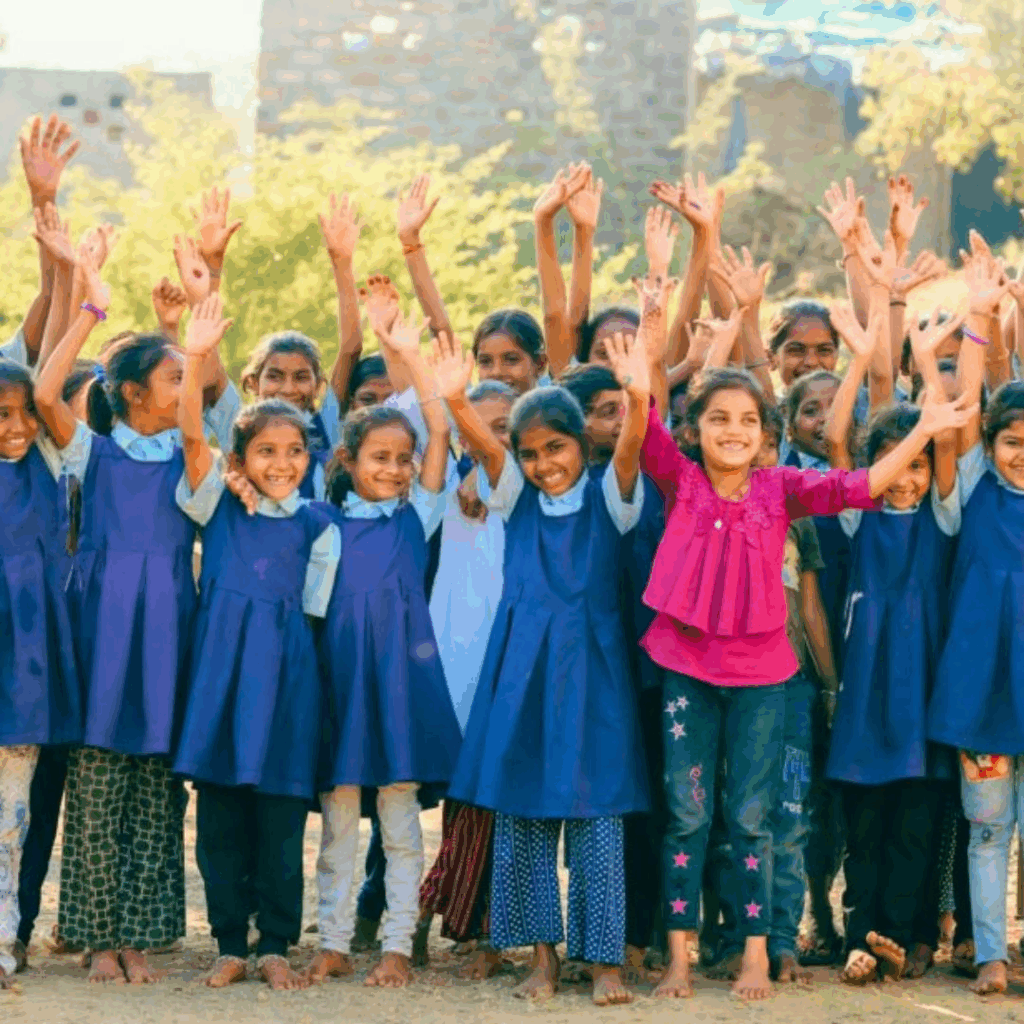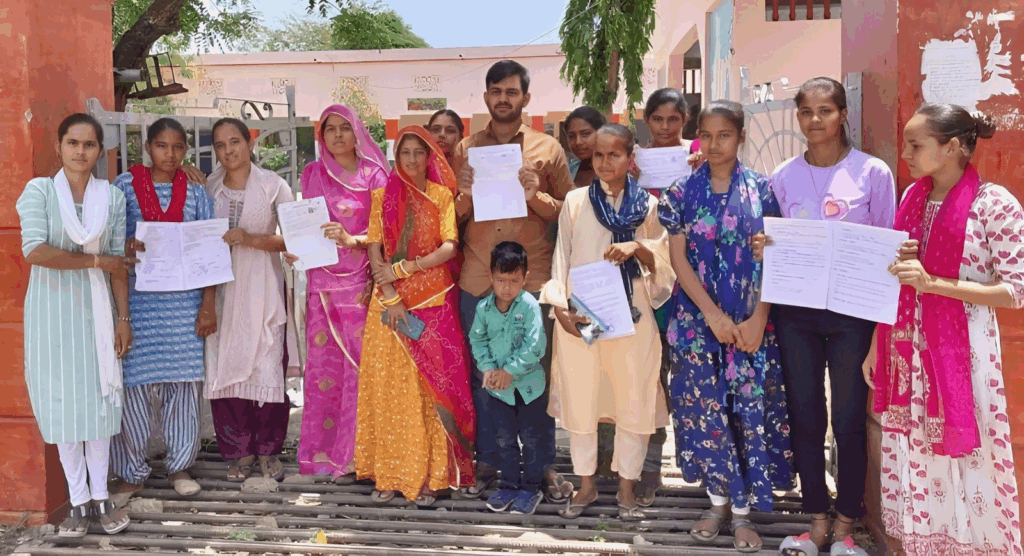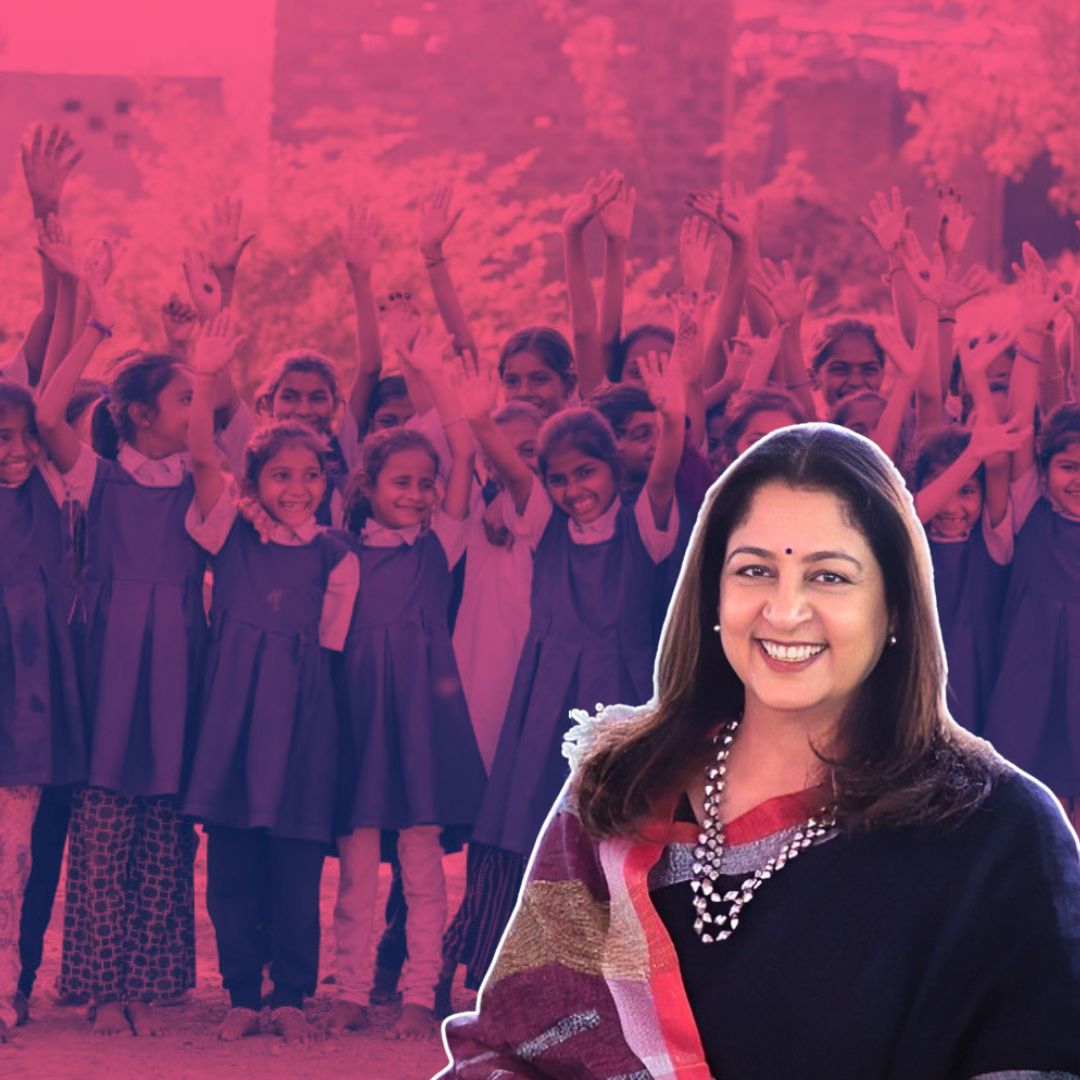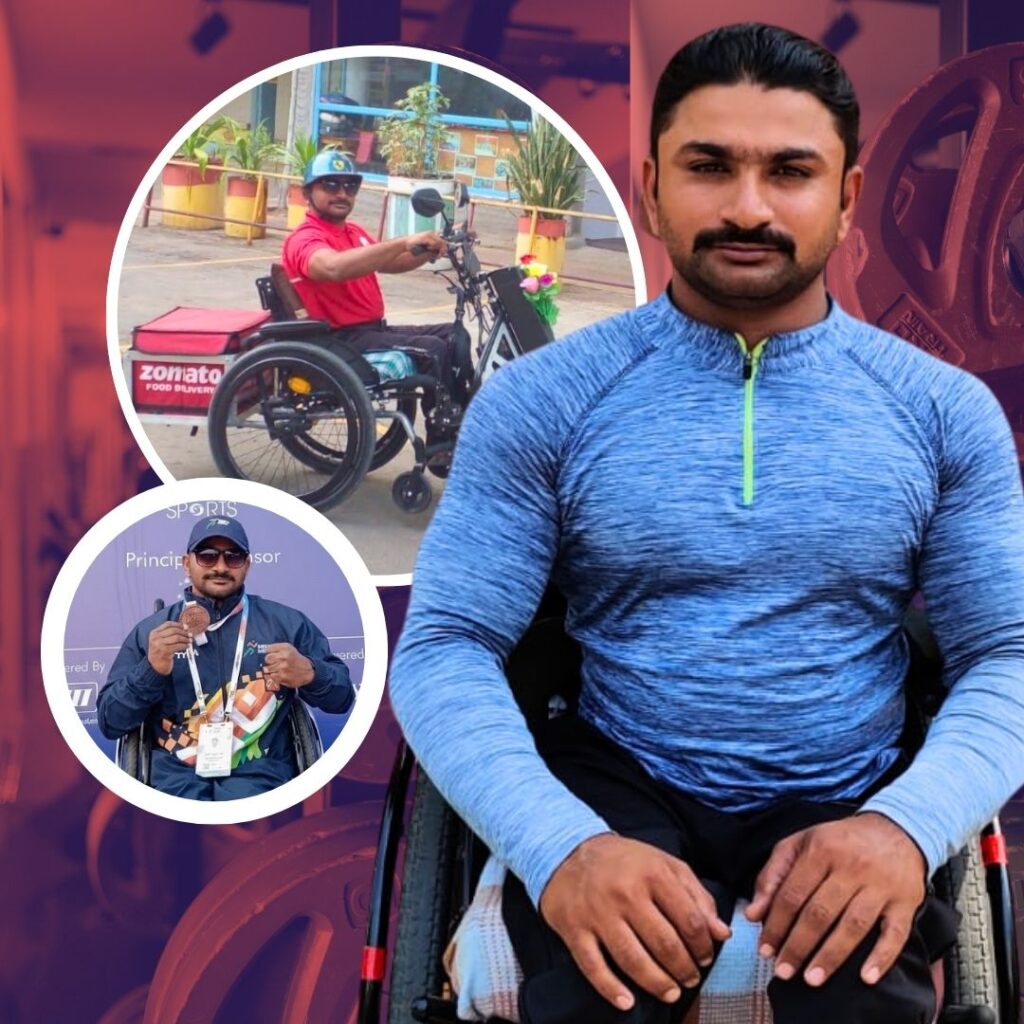Safeena Husain’s journey is a testament to how determination combined with a clear vision can lead to profound social change. Born and raised in Delhi, Husain’s own education was interrupted for nearly three years after Class 12, a disruption that deeply affected her confidence and self-esteem.
Reflecting on that time, she shared, “I know how an out-of-school girl feels watching her friends move ahead while she is left behind, carrying shame and guilt.” This personal experience planted the seed for her mission to enable every girl to claim her right to education with pride and confidence.
She later became the first in her family to study abroad, graduating from the London School of Economics with a degree in economics and economic history.
Her early career was global in scope, including volunteer work and leadership roles in healthcare-related nonprofits in Latin America, which shaped her understanding of grassroots social challenges.
Husain’s return to India in 2005 was driven by a determination to transform education for girls in some of the country’s most remote and marginalised areas.

Empowering Grassroots Change Through Education
In 2007, Safeena Husain founded Educate Girls with an initial focus on Rajasthan’s Pali and Jalore districts areas marked by some of the worst gender gaps in education.
Starting with just 50 pilot schools and a very small team, her strategy was simple yet revolutionary: work collaboratively with government schools, mobilise local communities, and engage youth volunteers called Team Balika to identify out-of-school girls and encourage their enrolment and retention.
Over the years, Educate Girls has expanded across Rajasthan, Madhya Pradesh, Uttar Pradesh, and Bihar, impacting over two million girls and altering the educational landscape radically. Husain highlights, “When change comes from within the community, it is sustainable.
We build ownership and pride in education.” The NGO’s retention rate of over 90% for enrolled girls exemplifies the effectiveness of their community-driven approach, paired with government initiatives such as Beti Bachao, Beti Padhao. Educate Girls not only ensures girls attend school but also supports remedial learning and life skills, ushering them toward a better future.

Innovative Impact with Measurable Outcomes
Beyond grassroots mobilisation, Educate Girls is a global leader in harnessing innovation to drive social impact. The organisation initiated and successfully completed the world’s first Development Impact Bond (DIB) in education, a results-based financing mechanism that linked funding to tangible educational outcomes.
Safeena says, “Innovation requires a blend of heart and metrics careful measurement enables scaling what works.” This pioneering financial model allowed Educate Girls to experiment, adapt, and expand its interventions effectively.
In addition, the ‘Pragati’ open-schooling programme has supported over 31,500 adolescent girls and young women, including school dropouts and those who could not attend regular classes, providing pathways to completing secondary education.
The combination of technology, data-driven decision-making, and community engagement has set a new standard for social entrepreneurship in India and beyond.

Overcoming Challenges, Achieving Milestones
Safeena Husain’s path was fraught with challenges. Deeply entrenched patriarchal mindsets, poverty, infrastructure deficits, and even skepticism within communities posed persistent barriers. Educate Girls’ success stems from a respectful, persistent dialogue with families, panchayats (village councils), and local leaders to shift perceptions about girls’ roles and education.
Husain recounts, “Working with communities, not against them, is key. Trust is earned when you respect their realities and help them envision a brighter future.”
Over 18 years, Educate Girls has enrolled approximately 1.8 million girls in school and supported the learning of over 2.2 million children through remedial programmes.
During the COVID-19 pandemic, the NGO extended its outreach by distributing rations and hygiene kits to over 200,000 households, reaching more than a million individuals, alongside launching Camp Vidya a community-based learning initiative for children deprived of formal schooling during lockdowns.
Her leadership and vision culminated in Educate Girls’ historic win of the 2025 Ramon Magsaysay Award, Asia’s most prestigious recognition for transformative leadership and service.

The Logical Indian’s Perspective
Safeena Husain’s journey, and the impact of Educate Girls, exemplify how empathy, steadfast community engagement, and innovative strategies can break the cycle of gender inequality entrenched for generations. At a time when education remains a critical right denied to many, this achievement inspires hope and affirms that change rooted in understanding and collaboration is not only possible but scalable.
Educate Girls’ story reminds us that empowering a girl is ultimately empowering a community, a nation, and a future built on equality and justice. The Logical Indian believes that replicating such models calls for concerted efforts among governments, civil society, and citizens alike. How can we adopt and adapt Educate Girls’ approach to address other social inequities and foster inclusive development across India?
If you’d like us to feature your story, please write to us at csr@5w1h.media











